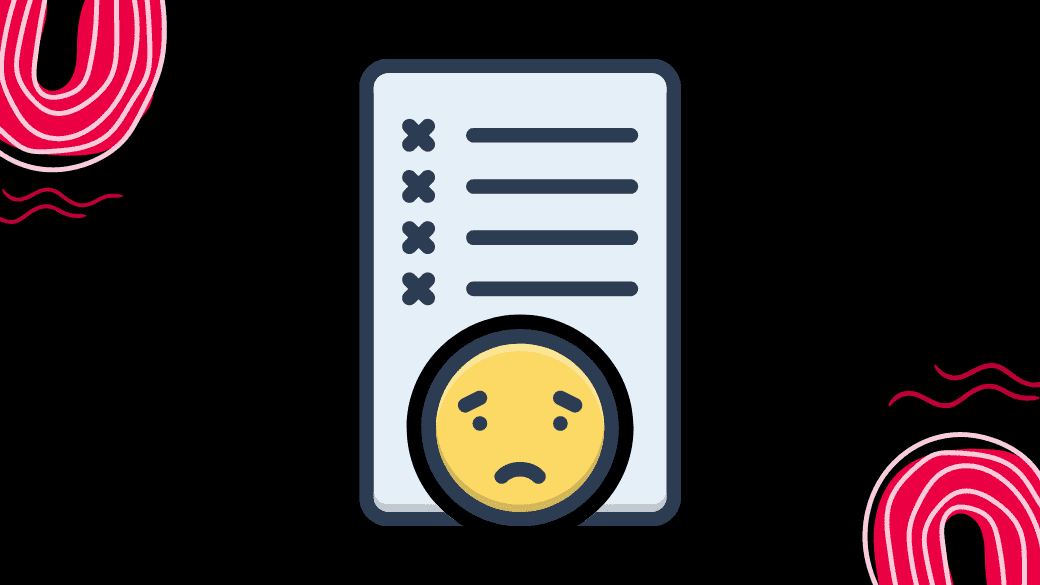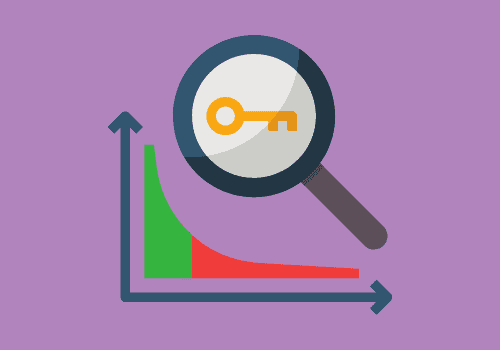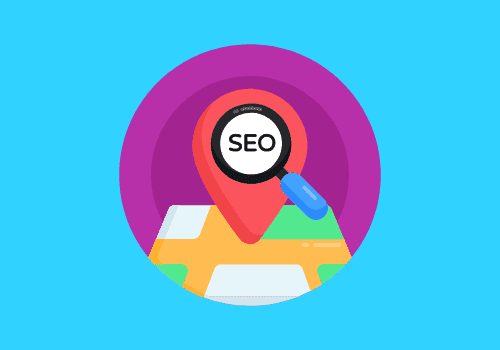6 Common SEO Mistakes That Are Costing You Traffic
Learn about the six most common SEO mistakes and how to avoid them in order to keep your business’s website traffic flowing.

by Chris Latham

There’s more to SEO (search engine optimization) than simply filling your website with keywords and hoping for the best.
Unfortunately, many business owners make common SEO mistakes that can hurt their ranking and cost them traffic. In this post, we’ll take a look at 6 of the most common blunders and how to avoid them.
So if you’re looking to improve your ranking and bolster your traffic, read on! You might be surprised at how easy it is to correct these common SEO mistakes.

1. Not using related keywords in your content
The first common mistake people make when it comes to SEO is failing to use keywords in their content.
Keywords are specific words that people might use to find your website. When you use these words, it is easier for Google to understand your website, which can help your website rank higher on search engines.
How to Choose the Right Keywords for SEO
When it comes to SEO, choosing the right keywords is essential.
You want to target keywords that are relevant to your business or blog topic. You want to keep in mind that Google is smart enough to understand words related to one another, such as “running shoes” and “athletic gear.”
You also want to make sure you’re not picking SEO keywords that are too competitive. If you’re just starting out, it might be challenging to rank for a word like “fitness” because there are already so many established websites using that keyword.
Instead, try to focus on more specific keywords like “women’s running shoes” or “cross-training shoes for men.” These are known as long-tail keywords.
Tips for Optimizing Your Content for SEO
1. Use keyword-rich titles
2. Use keywords in the first 100 words of your content
3. Use keywords in headlines and subheadings
4. Use keywords & related keywords throughout your content
5. Don’t forget about meta descriptions, image tags, and other opportunities to place keywords
What are Long Tail Keywords?
Long-tail keywords are simply keywords that are very specific and usually quite long. For example, if you sell pet supplies, a long-tail keyword might be “organic cat food.”
This is in contrast to a short, general keyword like “cat food,” which could mean anything from canned wet food to kibble. People who use long-tail keywords are usually further along in their buyer’s journey, and they’re more likely to convert into paying customers.
PS – One last thing about keywords
If the person you hired mentions keyword density as part of your SEO strategy. I highly recommend you run for the hills. Keyword density is an old-school tactic that no longer works and should not be part of any SEO strategy.

2. Not optimizing your images
You know how important images are to your website. They can make or break a page and be critical in engagement and conversion. But did you know that not properly optimizing your images can also negatively affect your SEO?
There are a few key things to keep in mind when it comes to image optimization. First, always use relevant keywords when naming your files. This will help search engines understand the image and index it accordingly.
Second, make sure to include alt text for each image. This is the text that appears when an image is unable to load. It provides another opportunity to include keywords that describe the image. This helps Google understand what the image is about, which can boost its ranking in search results.
The reason is that Google can’t read images, but it can read the text associated with them.
Finally, don’t forget to compress your images before uploading them to your website. This will help to reduce page loading times, which is an important SEO ranking factor for search engines.

3. Not using title tags and meta descriptions
If you’re not optimizing your title tags and meta descriptions, you’re missing out on two of the most important elements of SEO. Your title is what appears in the search results, so it’s your first chance to make a good impression on potential visitors.
A well-crafted title can be the difference between a click and a passing glance. Likewise, your meta description appears beneath your title in the search results. This is your opportunity to give visitors a taste of what they’ll find on your site and persuade them to click through.
A good meta description can significantly increase your CTR. So if you’re not taking advantage of these two important SEO elements, you’re missing out on valuable traffic and hurting your chances of ranking high in the search results.
4 tips for writing SEO title tags and meta description
- When writing titles and meta descriptions for pages, the first thing to keep in mind is to focus on your target audience. You want your titles and descriptions to resonate with the specific people who will be visiting your site, so it’s important to understand your audience’s interests and needs.
- Second, you should pay close attention to keyword research. This involves researching common keywords relevant to your website and analyzing the competition for those keywords so that you can effectively target them in your titles and descriptions.
- A third tip is to always proofread your work carefully before publishing it on your site. Having clear, well-written titles and descriptions is essential for your engaging visitors. Make sure that you take the time to ensure accuracy and clarity in all of your content.
- Last but not least, be creative! Don’t be afraid to try different approaches when writing titles and meta descriptions for your website. This can help you stand out from the crowd and increase engagement with potential visitors. At the end of the day, consistency and originality are key when trying to boost traffic and increase conversions on your site.

4. Having a slow website
In today’s world, people are constantly on the go and expecting instant gratification. If your website is loading slowly, they’re likely to move on to another site that can give them what they want more quickly.
This not only results in lost customers but also hurts your ranking on search engine results pages. Google has stated that page load speed is a ranking factor in its algorithm, so you’re likely to be buried under faster competitors if your site is slow.
Mobile Page Speed
Mobile devices add an additional layer of complexity, as many people now browse the web primarily through their phones. A slow-loading website on mobile is even more likely to result in lost customers and poor SEO.
Statistics show that 64% of smartphone users expect pages to load in less than 4 seconds. And 85% of mobile users expect pages to load as fast or faster than they load on the desktop.
Therefore, it’s essential to focus on making your website load as quickly as possible on all devices if you want to succeed in today’s digital landscape.

5. Not optimizing for local SEO
Think about the last time you went online to find a new restaurant or bar in your city. How did you go about it? If you’re like most people, you probably typed something like “restaurants in [city]” into Google. And what did you see? There is a list of restaurants, with the ones closest to you at the top.
That’s the power of local SEO. By optimizing their website for local search, businesses can make sure that they’re the ones that show up when people are looking for services in their area. But too many businesses either don’t know about local SEO or don’t think it’s worth their time.
Essentially, if your business is not ranking high on local SEO, it’s pretty much invisible to potential customers. Local SEO is crucial because it allows customers to find your business easily and quickly.
But more importantly, it allows you to target a specific audience in your area. If you’re not making an effort to rank high on local SEO, you’re essentially shooting yourself in the foot and hindering your own online growth success.
There’s no longer any excuse for not ranking high in local SEO nowadays. With so many tools and resources accessible, there’s really no excuse not to prioritize it.

6. Not having analytics installed
Not Using Analytics to See What Converts
Although free traffic is important, SEO isn’t only about generating a lot of it but also about conversions.
You might be wondering which phrases are sending you the most traffic and then getting bummed when they don’t rank for those super-competitive keywords.
But what matters is not just how many visitors come to your site but also whether or not visitors convert into customers! Sometimes long-tail keywords will convert better because they are more specific and show that the searcher is further along in the buying cycle.
Therefore, if you don’t have analytics set up and tracking your conversion data, you’re missing out on an essential piece of the SEO puzzle. Not only that, but you won’t be able to effectively improve your conversion rate without this data.
If you are looking for a free option, your best option is to use Google Analytics.
If you are privacy-focused, your best bet is to use Fathom Analytics.
Don’t let your website traffic fall by the wayside! Contact me for help in getting set up with analytics so you can track your conversions and improve your SEO.
Conclusion
SEO is an essential part of any online marketing strategy. By avoiding these common SEO mistakes, you can help keep your website traffic flowing and ensure that your business reaches its full potential.
Staying clear of the common mistakes above can help you avoid common pitfalls and ensure that your SEO efforts focus on the right areas.
But don’t worry, if you’re not sure where to begin or need assistance ensuring that your website meets industry standards, I can help make sure you aren’t making these mistakes and can help you optimize your SEO efforts.
So if you’re ready to get started, just reach out today and let’s discuss how I can help!






